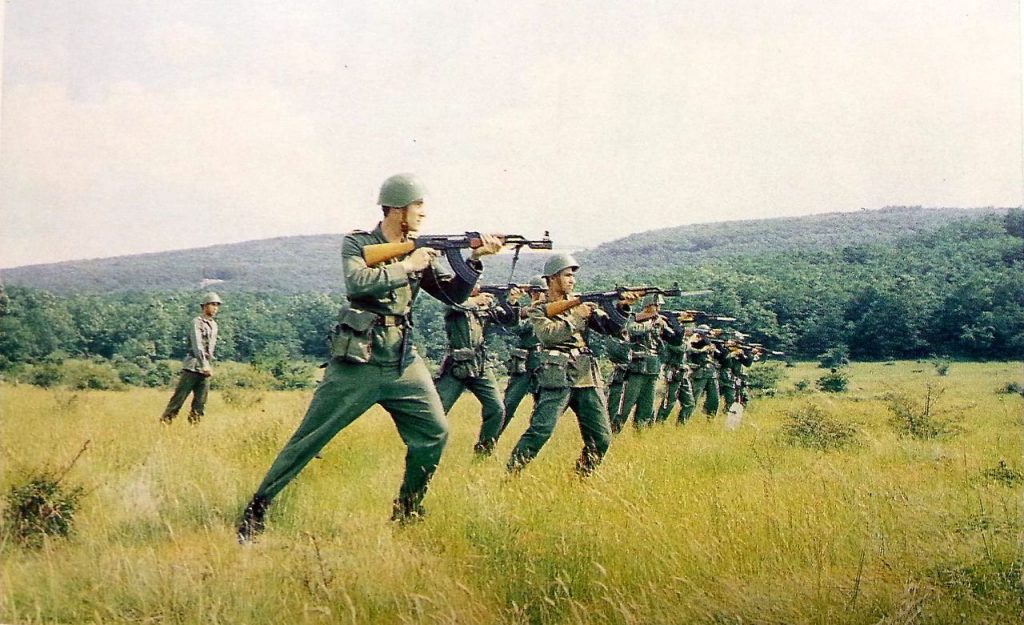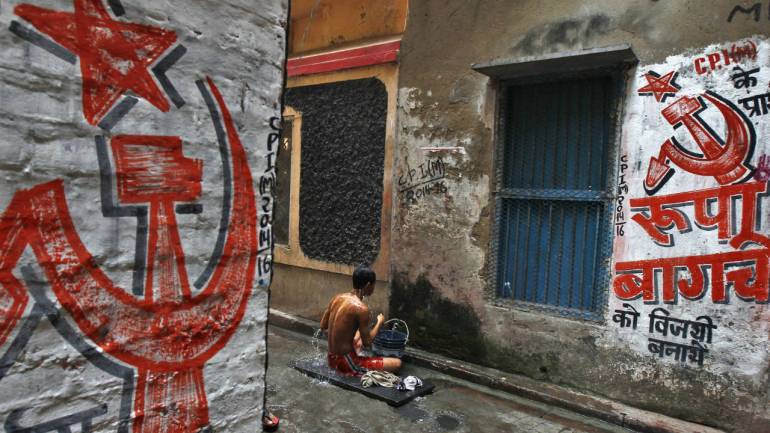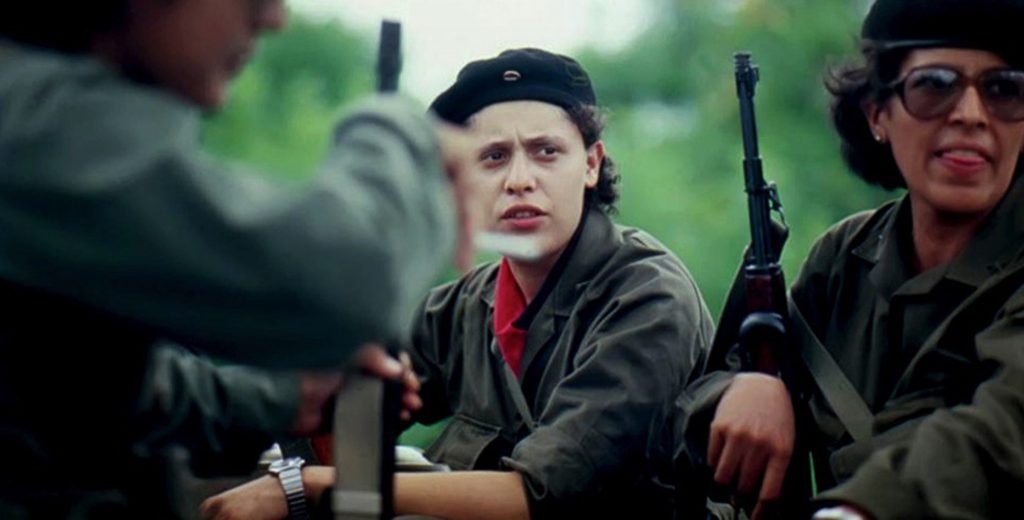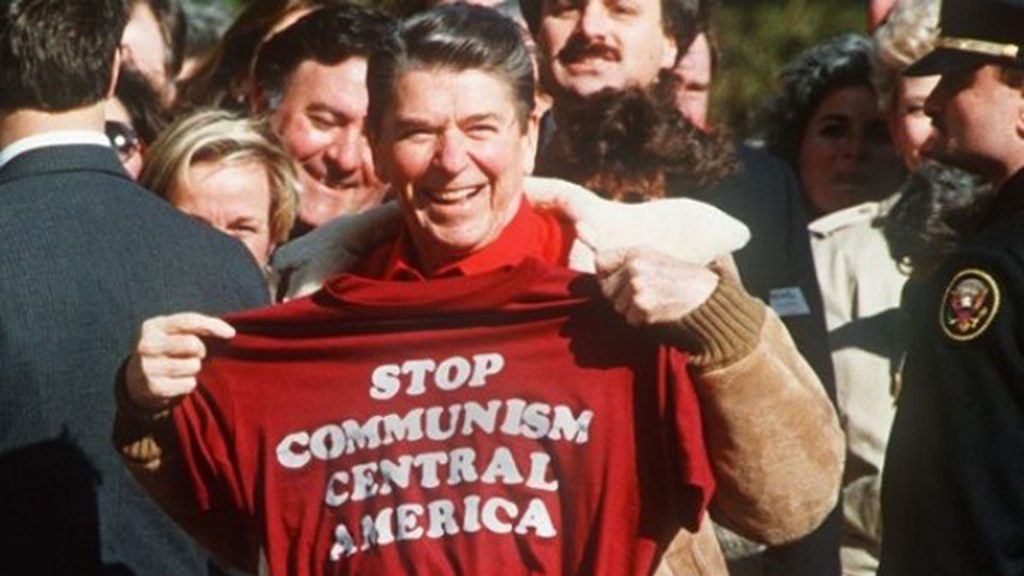In the Russian Revolution, Vladimir Lenin called for the international revolution to be carried out in all corners of the world. In the Cold War years long after Lenin had died, the countries of the Soviet Union and its Eastern Bloc allies committed themselves to implement this call by providing arms, training, and other assistance to communist revolutionaries around the globe. One of the Eastern Bloc countries rather passionate about providing such assistance was Bulgaria.
Like neighboring Romania, despite being a Fascist ally in WW2 Bulgaria wisely switched sides to the Soviets in 1944 and was under the rule of Communism until the early 1990s. During the Cold War, for 35 years it was led by Todor Zhivkov. Bulgaria was not part of the USSR but was a fierce ally of the Soviet Union, it was considered the ‘Silicon Valley of the Eastern Bloc’ due to their output of various technological productions.

Whilst Bulgarian assistance to communist revolutionaries around the world was once difficult to prove and was once only the subject of rumor from western intelligence agencies, the collapse of communism in Europe opened up a variety of insights into formerly covert operations led by Bulgaria around the world. Archives were opened and former communists now out of a job were looking to talk in exchange for some cash or due to them having a change of political opinion.
One of these latter communists was a man named Ivan Tatarchev. Formerly a chief prosecutor under the Bulgarian Communist regime, he morphed into an anti-communist as the system collapsed and turned on his former colleagues, even trying to put many of them behind bars. In the process, Cold War history that was once hidden in the shadows was illuminated by Tatarchev.
It’s no secret that throughout the entire Eastern Bloc, Communist Bulgaria was one of the more liberal and relaxed communist regimes in comparison to nearby Romania and Albania which were run by regimes of sheer terror for decades and ended violently as a result. This liberal way of ruling didn’t go unnoticed by international communist or communist aligned governments who saw Bulgaria as a soft touch in comparison with the Soviet Union, China, or Communist Romania, for example.

Throughout the Cold War, in a battle for the heart of far away Communists and revolutionaries, Bulgaria sent financial and military aid to countries like Angola, Ethiopia, and Yemen. When representatives of the Communist Party of Bangladesh requested that Bulgaria be kind enough to provide catering for their annual party conference, Bulgaria gave them over $25,000 instead as they feared that the catering would be ruined in transit to Bangladesh. Quite naturally, the Bengalis skipped a king’s feast of Paratha and Biryani and used the money to buy friends in the Sandinista National Liberation Front over in Nicaragua.
Ironically, Bulgaria developed an enormous attraction for the Sandinistas after the Bengalis had sent most of the $25,000 to them. During the height of the Sandinista revolution in the 1980s, the Bulgarian Communist regime sent over $50 million in military aid to assist them. Cuba received similar amounts, although slightly less.

Despite this vast amount of military aid being sent to the revolution in Nicaragua, one of the most covert arms deals of the Cold War took place between Honduras, Bulgaria, and Nicaragua. Despite being a fairly peaceful country in the early 1980s, Communist militants in Honduras were eyeing up the revolution in nearby Nicaragua, and in 1982, they declared to Bulgaria that ‘the time is right to begin the armed struggle’.
However, arming the Communist revolutionaries in Honduras wasn’t as simple as doing so in other states, these were picky communists and didn’t want to be supplied with weapons from the Soviet Union or the Eastern Bloc such as Kalashnikovs and RPGs. The reason for this is that they wanted to be able to deny that they were receiving assistance from other nations. But where there’s a will, there is a way.

Between Bulgaria, Honduras, and Nicaragua, it was agreed that Bulgaria would ship Eastern Bloc weapons to Nicaragua. Subsequently, Nicaragua, which was in possession of large stocks of American weapons, would send their Western stock to Honduras. Recently declassified Bulgarian documents reveal that the Sandinistas held most of the power in this deal as it was their leaders who decided how and when the weapons would be delivered to Honduras.
Before long, Bulgarian arms operations in Central and South America were becoming huge. In El Salvador, which was gripped in an insurgency between the government and Communist guerillas, it’s believed that the Bulgarian Communist regime provided military-grade pilot training for the Guerillas which allowed them to supply their various units with arms, ammunition, and equipment using small planes. The guerillas denied this and claimed that they were instead being supplied via donkeys from Honduras.
 During the 1980s, the Salvadorian guerilla leader Shafik Handal visited the Bulgarian capital of Sofia as a representative of one of the five operational guerilla units active in the Salvadoran Civil War. There he boasted to the Bulgarian communist leaders that his unit had received over $2 million in cash from the government of East Germany. Not wanting to be outdone by the DDR, the Bulgarians gave Handal over 200 assault rifles, 500 handguns and over a ton of high explosives. This military aid was sent via Cuba with all Bulgarian markings removed.
During the 1980s, the Salvadorian guerilla leader Shafik Handal visited the Bulgarian capital of Sofia as a representative of one of the five operational guerilla units active in the Salvadoran Civil War. There he boasted to the Bulgarian communist leaders that his unit had received over $2 million in cash from the government of East Germany. Not wanting to be outdone by the DDR, the Bulgarians gave Handal over 200 assault rifles, 500 handguns and over a ton of high explosives. This military aid was sent via Cuba with all Bulgarian markings removed.
In 1985, as Chile was under the regime of right-wing dictator Augusto Pinochet who had a penchant for throwing communists out of helicopters, Bulgaria found another Latin communist group to shower with military aid and cash. The Chilean Communist Party received a lovely gift of $50,000 in 1985 before Bulgaria invited its militant members to Sofia to receive military training. Recently declassified Bulgarian Communist Party documents revealed that 5 Chilean communists were sent to a Bulgarian army training school in Sofia for a two-year course.
In Africa, the Bulgarians were also active in various forms of arms dealing. In 1983, the Bulgarian Communist regime sent an incredible 3,000 AK47, 100 PKM machine guns and over one million rounds of ammunition to Libya. From Libya, the weapons found their way to Chad to arm a Libyan-supported group fighting another group which was receiving equal support from the CIA. A classic case of a proxy war during the Cold War.
One of the most unlikely recipients of Communist Bulgarian aid was Israel, albeit non-deadly aid. The Communist Party of Israel received almost 400 tons of Communist propaganda from the Soviet Union every year, but naturally, Soviet Russia didn’t want to be directly involved. So the shipments were sent to the Bulgarian international port city of Varna before being reloaded onto other ships assigned to a fake trading company set up by Bulgarian communists in Western Europe, and sent to Israel.
To visit the relics of Communist Bulgaria from the Communist headquarters in Buzludzah to the Soviet Friendship monument on the Black Sea, check out our range of group and private tours to Bulgaria every year!

